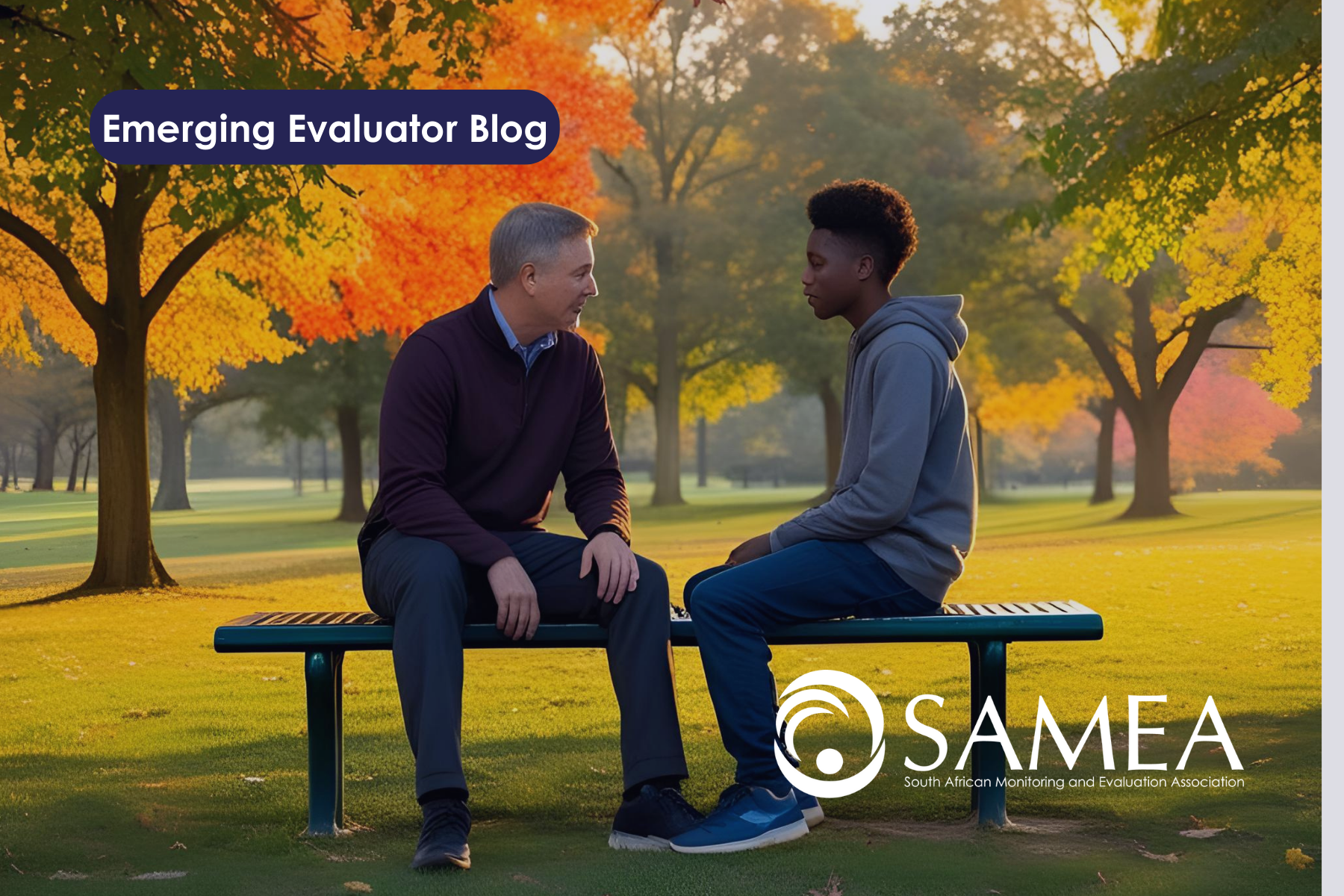Lessons Learnt from the SAMEA Conference: A Reflection by a SAMEA Emerging Evaluator

Blog by Andiswa Neku – Emerging Evaluator at SAMEA (2024)
The 2024 South African Monitoring and Evaluation Association (SAMEA) Conference was an invaluable experience for me as an emerging evaluator. It provided a platform not only to deepen my understanding of the field but also to engage with practitioners and scholars whose insights have significantly influenced my professional growth.
Reflecting on this event, several key lessons stand out that are essential for both new and experienced evaluators. This reflection explores the implications of these lessons and their significance for advancing Monitoring and Evaluation (M&E) practice within an academic context.
Embracing Contextual Relevance in Evaluation
One of the most compelling takeaways was the emphasis on tailoring evaluation practices to specific cultural, social, and economic contexts. Presentations and discussions highlighted the need for evaluations aligned with local values and realities—an approach strongly linked to the Made in Africa Evaluation (MAE) framework.
MAE challenges evaluators to move beyond adapting Western-centric methodologies and instead co-create tools that truly reflect African societies’ unique dynamics and needs.
Academically, this lesson demands a paradigm shift in M&E research and practice. Scholars must engage critically with the epistemological foundations of existing frameworks. Further research should explore the systematic integration of indigenous knowledge systems into evaluation practices. Emerging evaluators, especially those in academia, must prioritise developing case studies and comparative analyses to demonstrate the efficacy of context-specific methodologies.
Networking and Mentorship Are Indispensable
The conference reinforced the critical role of professional networking and mentorship. Conversations with senior evaluators and peers provided insights into current trends, challenges, and innovative approaches within the field.
Sessions dedicated to the Youth Evaluators Initiative (YEE) were particularly impactful, demonstrating how structured mentorship and peer support can help emerging professionals navigate their career paths.
Importantly, these interactions pointed to the need for mentorship programmes integrated into university curricula and professional development initiatives like the Emerging Evaluator (EE) Programme.
For academia, fostering mentorship can facilitate knowledge transfer and collaborative research opportunities, ultimately enriching both theoretical and applied M&E work. Research on mentorship effectiveness, such as longitudinal studies tracking mentee career outcomes, would be a valuable contribution to M&E literature.
The Power of Storytelling in Evaluation
Storytelling emerged as a powerful theme at the conference, showing how narratives can enhance the engagement and impact of evaluations.
Speakers shared examples where combining storytelling with quantitative data significantly improved stakeholder understanding and action. This highlighted the idea that how findings are communicated can be as important as the findings themselves.
Academically, storytelling deserves deeper exploration as a methodological tool. Qualitative approaches like ethnography and narrative inquiry are critical for capturing the complexities of human experiences. Academic programmes should integrate courses on effective communication, blending quantitative rigour with rich, context-specific narratives. Future research could examine how storytelling techniques influence stakeholder understanding and the utilisation of evaluation results.
Advocacy for Inclusivity and Representation
A major conference highlight was the emphasis on inclusivity and representation in evaluation practice.
The sessions stressed that evaluations must meaningfully include marginalised voices, particularly those from youth and community groups. Participatory approaches not only enrich the data but also foster trust, ownership, and accountability among stakeholders.
This calls for academic inquiry into the effectiveness of participatory evaluation methodologies. Research should examine whether inclusive practices lead to greater validity, reliability, and sustainability of evaluation outcomes.
Participatory Action Research (PAR) principles, where research subjects become co-researchers, align with this vision. Investigating the long-term impact of participatory evaluations on policy and programme outcomes could yield valuable insights.
Building Knowledge Products Post-Conference
An essential lesson from the conference was the importance of creating knowledge products after attending professional events.
Synthesising insights into articles, learning briefs, or blogs helps bridge the gap between theory and practice. It reinforces personal learning while contributing to the collective advancement of the M&E field.
For academic professionals, post-conference reflections can be springboards for scholarly publications. Journals could foster this by featuring special issues or thematic sections based on major evaluation conferences. Interdisciplinary collaborations—linking M&E with fields like sociology, anthropology, public administration, or even law—can further enrich these insights.
Conclusion
The 2024 SAMEA Conference was more than an event; it was a transformative experience that solidified my commitment to becoming an adaptive, culturally aware, and engaged evaluator.
Lessons on contextual relevance, networking, storytelling, inclusivity, and knowledge-sharing will serve as guiding principles throughout my journey in the M&E field.
For emerging evaluators seeking to make a meaningful impact, these insights offer invaluable stepping stones toward building a career that is both impactful and deeply rooted in the communities we aim to serve.
Academic discourse around these themes will be crucial to shaping a more equitable, inclusive, and effective evaluation practice.
Most Recent Read
Discover more topics
